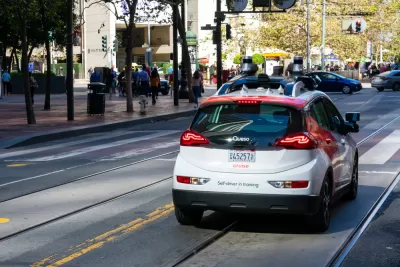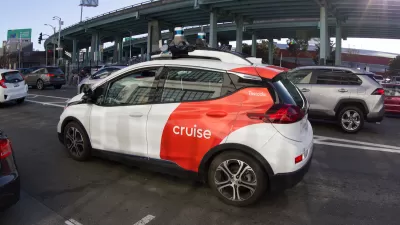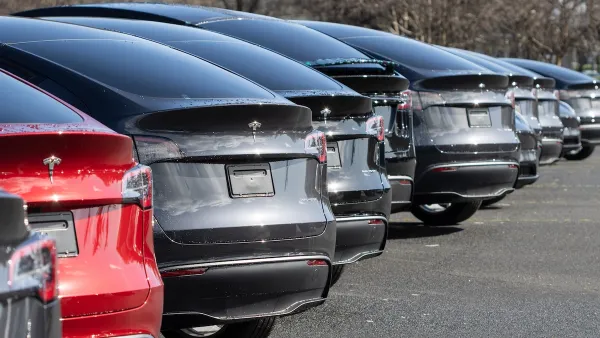The autonomous car company’s precipitous downfall offers lessons for other carmakers.

In an article in Fast Company, Jessica Bursztynsky outlines the brief history of Cruise, the autonomous car maker that seemed poised to be at the forefront of the self-driving revolution. “But building successful AVs proved to be pricier and more time consuming than initially expected, so many of Cruise’s peers ended their self-driving goals in the coming years. Cruise, and Google’s Waymo, were among the last and best players standing.”
After allowing the company to begin offering autonomous taxi rides in San Francisco earlier this year over protests from local officials, California regulators pulled Cruise’s operating license after multiple crashes and incidents involving its vehicles, including a San Francisco collision in which a Cruise vehicle dragged a woman before stopping. Then, facing more scrutiny, the company abruptly ended its operations across the country.
Now, Cruise has laid off almost a quarter of its workforce and “could also face $1.5 million in fines and additional sanctions” from the California Transportation Commission for “misleading the commission through omission regarding the extent and seriousness of the accident” and making misleading public comments.
FULL STORY: How Cruise went from buzzy self-driving startup to ‘public safety risk’

Planetizen Federal Action Tracker
A weekly monitor of how Trump’s orders and actions are impacting planners and planning in America.

Chicago’s Ghost Rails
Just beneath the surface of the modern city lie the remnants of its expansive early 20th-century streetcar system.

San Antonio and Austin are Fusing Into one Massive Megaregion
The region spanning the two central Texas cities is growing fast, posing challenges for local infrastructure and water supplies.

Since Zion's Shuttles Went Electric “The Smog is Gone”
Visitors to Zion National Park can enjoy the canyon via the nation’s first fully electric park shuttle system.

Trump Distributing DOT Safety Funds at 1/10 Rate of Biden
Funds for Safe Streets and other transportation safety and equity programs are being held up by administrative reviews and conflicts with the Trump administration’s priorities.

German Cities Subsidize Taxis for Women Amid Wave of Violence
Free or low-cost taxi rides can help women navigate cities more safely, but critics say the programs don't address the root causes of violence against women.
Urban Design for Planners 1: Software Tools
This six-course series explores essential urban design concepts using open source software and equips planners with the tools they need to participate fully in the urban design process.
Planning for Universal Design
Learn the tools for implementing Universal Design in planning regulations.
planning NEXT
Appalachian Highlands Housing Partners
Mpact (founded as Rail~Volution)
City of Camden Redevelopment Agency
City of Astoria
City of Portland
City of Laramie





























